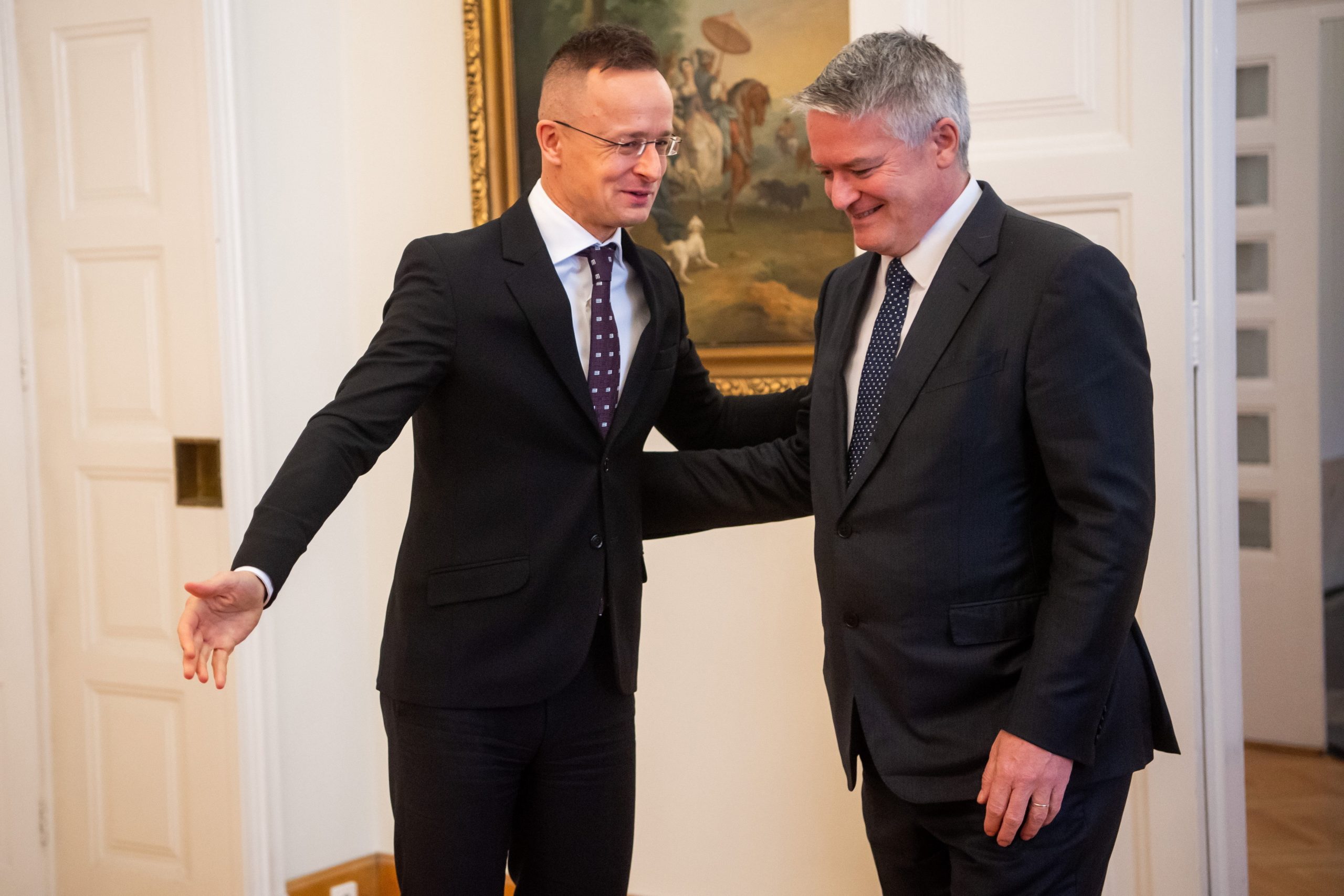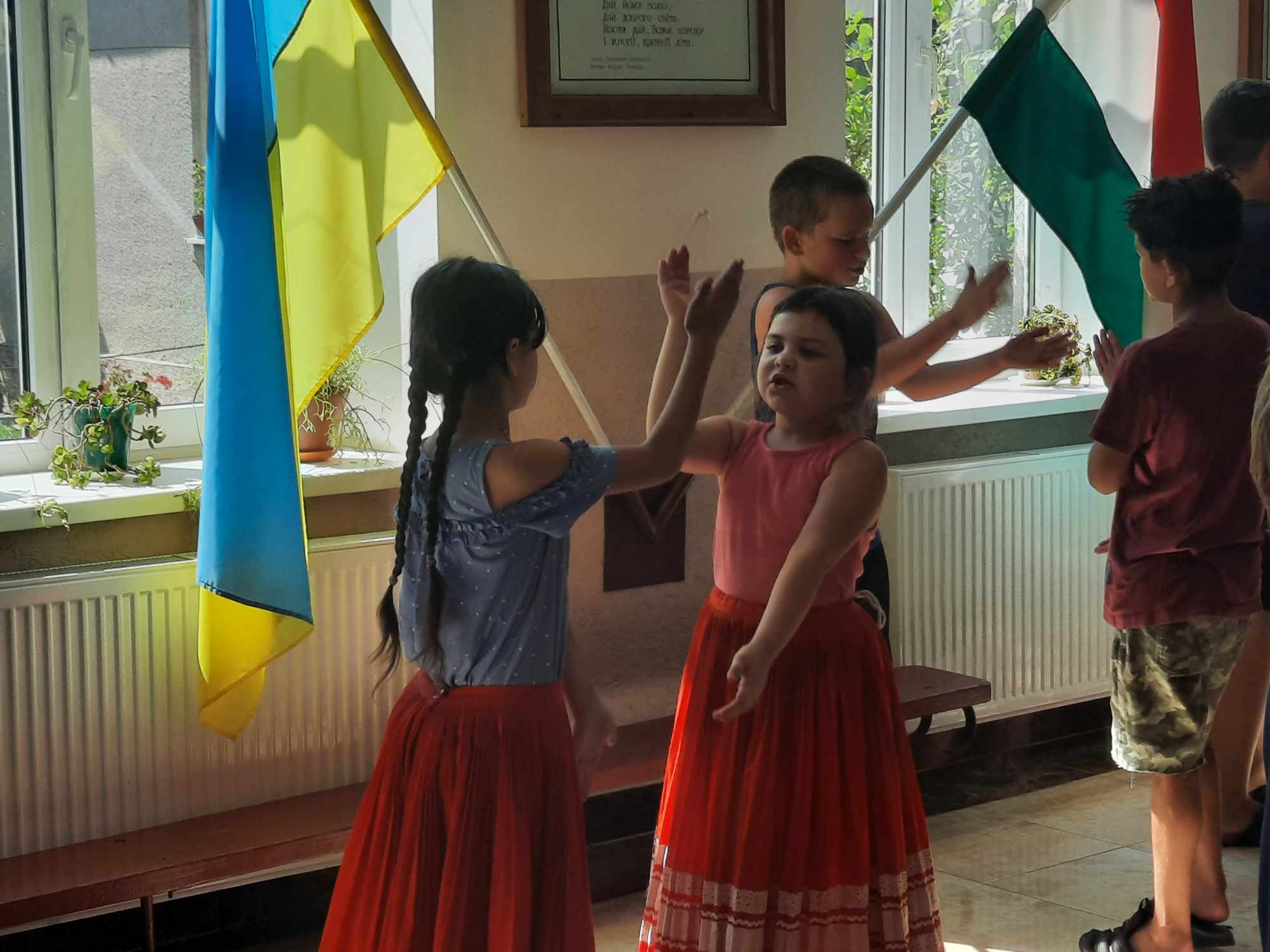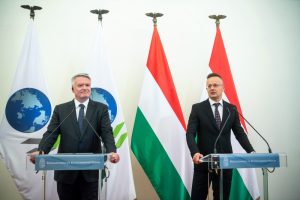
The Minister of Foreign Affairs and Trade held talks with the Secretary-General of OECD in Budapest.Continue reading

The response document sent by the Ukrainian government does not contain any progress on the full restoration of the rights of the Hungarian minority in Transcarpathia before 2015, Foreign Minister Péter Szijjártó said in Budapest on Tuesday.
At a press conference held jointly with the Secretary-General of the Organization for Economic Co-operation and Development (OECD), the Foreign Minister, in response to a journalist’s question, recalled that at his January meeting with his Ukrainian counterpart, he had made Hungary’s expectations on this issue clear, i.e. that the former rights of the Transcarpathian minority that had been gradually reduced in the meantime should be restored. Furthermore, he said that a document had been handed over summarizing in eleven points the decisions that would be necessary on the Ukrainian side. “All we ask is that the rights that the Hungarians of Transcarpathia already had should be restored,” he noted.
Unfortunately, we have to conclude that the response document sent to us by our Ukrainian colleagues does not contain any progress in this respect,”
he pointed out.

Foreign Minister Péter Szijjártó (R) and Mathias Cormann, Secretary-General of OECD, at a press conference after their meeting in Budapest. (L). Photo: MTI/Balogh Zoltán
Minister Szijjártó also said that the official reply would be sent to Kiev on Wednesday. “As long as the necessary legislation for the restoration of the rights of the Hungarian national community is not passed in Ukraine, the conditions for a meeting at the highest level simply cannot be given,” he added.
Furthermore, in September last year, the Ukrainian Parliament adopted an amendment to the Minority Act, which still does not restore the rights of national minorities. The text of the amendment removes an important criterion for defining national minorities, namely that their representatives traditionally live within the territory of Ukraine.
At the press conference, the minister was also asked about the Polish Prime Minister Donald Tusk’s criticism about him having dinner with his Russian counterpart Sergey Lavrov at the Antalya Diplomacy Forum. In response to this, Szijjártó said that there is not only friendship between the Hungarian and Polish nations, but also brotherhood, which in his opinion, “can withstand political episodes such as the one the Polish Prime Minister has been producing in the last few weeks.”
He explained that the forum in Türkiye is almost like a UN General Assembly, and at its gala dinner he sat at the same table with six or seven foreign ministers, including his Russian counterpart. “If you sit next to a foreign minister colleague, you usually have a conversation. The fact is that we have a role as foreign ministers to keep in touch with each other,” he said.
In diplomacy, I think the achievement is that you keep in touch with people with whom you do not agree on everything. I do not think it is a diplomatic achievement if you only talk to people with whom you agree on everything,”
he explained.
The minister concluded by saying that he would continue to engage with his Russian counterparts if he had the opportunity or the need to do so. “I think the Prime Minister of Poland would be surprised to know how long the list of European politicians who have asked me in recent years to help them to establish contacts with the Russians, to arrange a meeting or just to send them a message,” he added.
Via MTI, Featured image: Facebook/Kárpátaljai Magyar Pedagógusszövetség